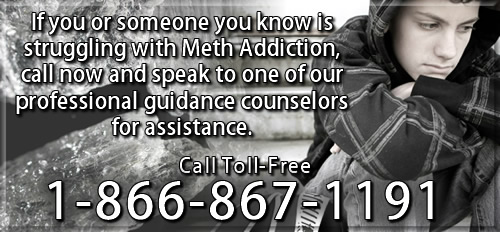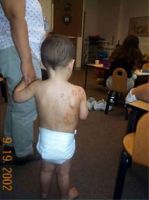Navigate
- Effects of Meth
- Meth Addiction
- How Meth is Used
- Meth in the News
- History of Meth
- Pictures of Meth
- Crystal Meth
- Identifying a Meth User
- Children of Meth Users
- Meth Lab
- Meth Prices
- Meth Slang Terms
- Meth User Pictures
- Dangers of Meth
- Meth Addiction Help
- Meth Babies
- Meth Lab Photos
- Meth Labs
- Meth Rehab
- Meth Mouth
- Meth Statistics
- Meth Symptoms
- Meth Teeth
- Meth Users
- What is Crystal Meth
- Meth Run
- Definition of Meth
- Meth and the Mind
- Meth Behavior
- Tweaker
- Meth Recovery
- Meth Versus Cocaine
- What is Meth Made Of
- Meth and the Brain
- Meth Mental Effects
- Meth Side Effects
- Meth Long Term Health Effects
- Meth Federal Guidelines and Regulations
- Methamphetamine
- Meth and Sexual Behavior

Meth Babies
Meth babies are children of meth users who have experienced the dangerous effects of meth. Children are particularly vulnerable to the health effects associated with meth labs.
Meth babies are generally more at risk than adults to environmental hazards because:
- they have immature organ systems, faster metabolic rates, and weaker immune systems
- they eat more food, drink more fluids and breathe more air per pound of body weight
- they are less able to protect themselves
- their behaviors (crawling, dirt eating, hand-to-mouth) expose them to more hazards.

Meth babies whose parents use or make meth are often neglected. Many are thin and hungry. They can have toxic chemical residue on their skin and toys. Many have respiratory problems. All suffer emotional problems. Barbara Knox, a pediatrician at the Mayo Clinic in Rochester, says it's too soon to know what long-term effects these meth babies will suffer. Knox says most of the research focuses on babies born addicted to meth. It's a repeat of 20 years ago when the focus was on babies born addicted to crack. And like then, doctors and researchers have more questions than answers.
Knox says some things are clear. She says if a woman uses meth early in her pregnancy, there's a greater chance the baby will experience brain damage or even pre-birth strokes.
"These children were starting to have neurological damage, and some damage to their organs as well as to the respiratory system," says Knox.
Dr. Knox says most doctors don't know what to look for in newborns. For instance, if meth babies first stool sample is tested, doctors can tell what the mother ingested over the previous six months. But if that first sample is missed, future tests can only verify what the mother took in, over the last 48 hours.
In Anoka County, Minisota at least one baby born each week is addicted to meth. In one month, there were as many as 11 babies born with meth in their system.
"It happens left and right," says Jacki Humphrey, a social worker. "We have a lot of pregnant users we're following, that may or may not test positive at birth. But then there's always some we've never heard of until the baby is born."
When a meth baby is born, it is taken away from the mother. The mom isn't charged with a crime, but in order to get her baby back the mother has to get treatment and prove to the court she can stay sober. If she can't, her parental rights are terminated and the baby is placed for adoption.
Drug Enforcement Administration (DEA) data showed that 30% of labs nationwide, and 50% of Minnesota labs had children living in them at the time of seizure. Illegal meth labs pose the greatest danger to children living where drugs are made. Children in meth labs are exposed to the highest levels of chemicals. They are at risk of explosion, fire, chemical burns, and are often neglected and abused by drug-using parents.
Other hazards to children in these chaotic environments may include exposure to weapons, finished drugs and unsanitary conditions. Children in adjacent apartments, and those who live in former lab properties that have not been adequately cleaned are also at risk. Additionally, growing evidence shows risk to fetuses from exposure to ingested drugs and toxic chemicals in the home environment. Studies in Washington, Iowa and California show that childhood exposure to toxic meth lab chemicals can result in damage to kidneys, liver or spleen, and may lead to violent behavior. Absorption of methamphetamine through the skin may cause rapid heart rate, hypertension, seizures, or solvent intoxication. Therefore, meth babies taken from meth lab environments should be evaluated at a hospital or clinic.
